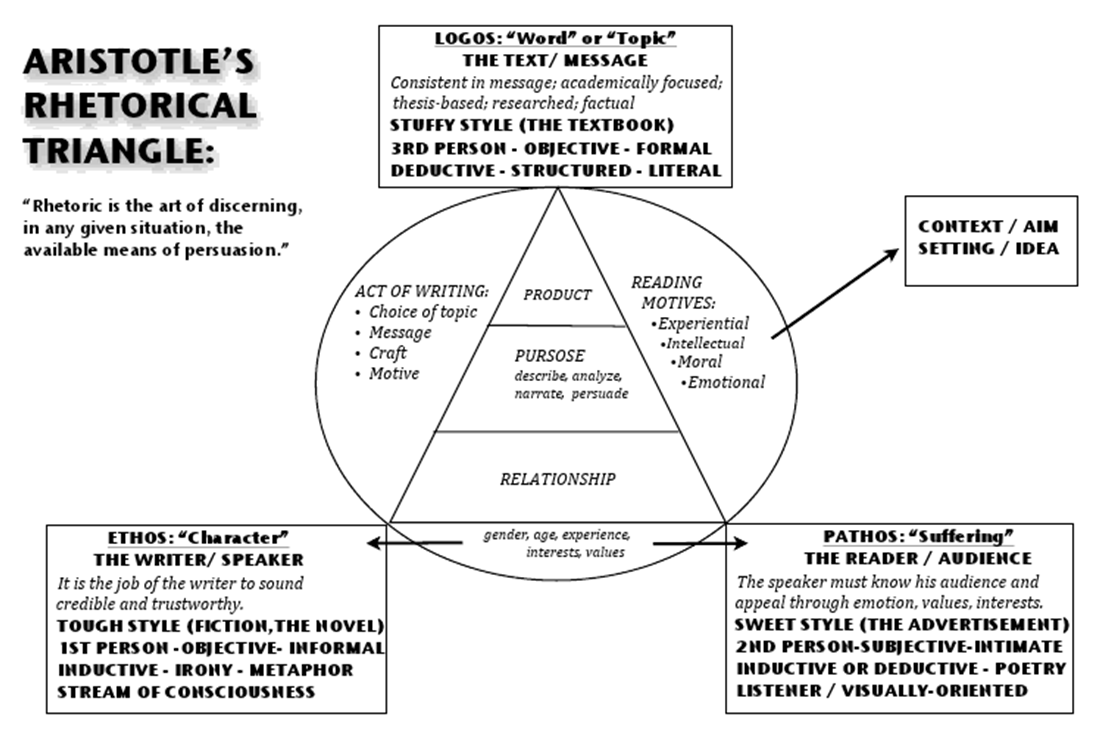This past Wednesday, I was honored to be asked by the
Puente Program educational partnership with UC Berkeley to present a workshop for their English faculty.
Rhetorical Analysis as 'La Facultad'
I called the workshop "La Facultad as Rhetorical Analysis," borrowing from Gloria
Anzaldúa's definition of la facultad in Borderlands/La Frontera as the “capacity to see in
surface phenomena the meaning of deeper realities, to see the deep structure
below the surface” (60). When Anzaldúa talks about “structures,” I described them as the
different genres of writing like the applications that can seem super daunting. When students are taught to approach these kinds of writing with the
understanding that it’s a genre, they're less intimidated because of the awareness that genres have established structures and expectations.
(Workshop handouts)
Below are a few of the handouts that I culled from online that demonstrate the traditional Aristotelean triangle, as well as the more contemporary triangle that highlights the important aspects of rhetorical situation. In addition to Aristotelean analysis, we discussed the role of ideology on what Zizeck explains as governing the desires of our daydreams.
(https://didimicommunications.wordpress.com/)
Following the workshop, I had the opportunity to speak with a few of the English faculty members at
Diablo Valley College who had been working with Puente for several years with great success stories about students who had continued on to four-year institutions. In addition, there was an informative talk by Katie Hern at Chabot College who discussed approaches for increasing access for students of color, and increasing their continuation to non-remedial, college level instruction in English.
A few of her key advocacy points were:
- Don't police borders of remedial classes/open access to students at all levels to encourage continuation
- When 20-30% of students are lost over the few layers of remedial classes, the success rate diminishes to only 30% by the time students enter college level English.
- Students responded well to advanced readings like Pedagogy of the Oppressed and other discipline-specific readings, especially psychology.
- Students engage with texts better when they work in small groups to problem-solve and teach one another
A video of Katie Hern speaking on Accelerated Programs:







